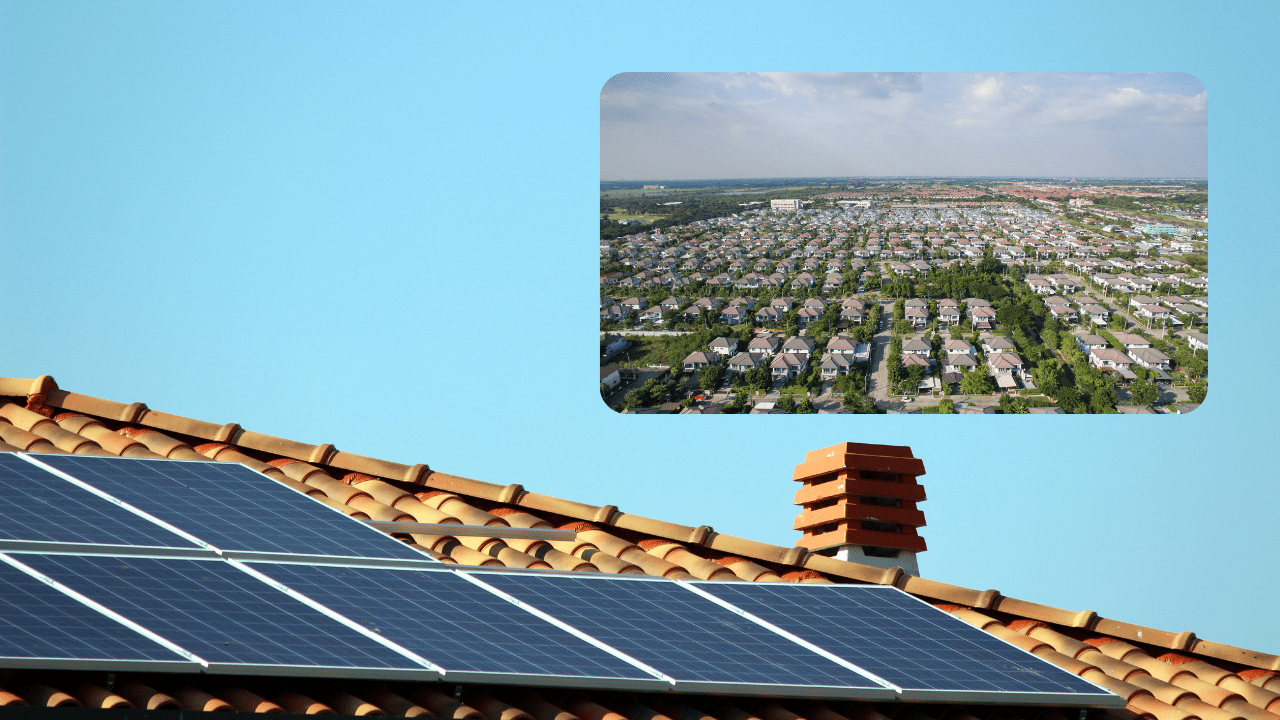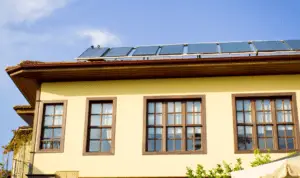In this post, we shall answer the query: are solar panels good for environment and its related aspects. Human society’s access to electricity led to the innovation of automated devices that save time and labor. From the workplace, to our households, life today is surrounded with technology.
Life today would be dull and bland if not for electricity. We have used electricity even in the comfort of our homes – cleaning, cooking, leisure, and enjoyment, that it became so incorporated with our daily lives.
Online transactions, business meetings, attending webinars, all of which are commonly done today are possible though the existence of electricity. As the technological consumption of humans is heavily dependent on energy, the demand of electricity increases.
Majority of the world’s electric supply is produced through combustible fuels – fossil fuel, coal, and oil, which amounts to 61%, while the use of renewable energy sources combines only to 25%, only with 2% attributed to solar power, according to the International Energy Agency report of 2018 .
Although cost-efficient, the use of these non-renewable energy sources is harmful to the environment and also one of the greatest contributors to global warming. This demand for electricity will only grow in the next few years.
The choice as of whether we grow our environmental footprints or not depends on our choices as country, and as a world-wide community.
Are solar panels good for the environment?
The use of solar panels is more beneficial and advantageous to our environment. Conventional power plants use fossil fuel, coal, and oil as means to generate electricity.
As these are burned, they release a number of substances – Sulfur Dioxide, Nitrogen Oxide, Carbon Dioxide, Ashes, Mercury and other heavy metals, which are harmful to humans and to the ecosystem.
These may pollute our waters and land, which most are used for agriculture and livestock that can lead to contamination and poisoning.
Solar Panels reduces the production of pollutants as it only utilizes energy from the sun to generate electricity. Residential solar panels, which are able to supply the electricity needs of an entire home are able to reduce the carbon emissions about to 80%, compared to fossil fuels.
This would reduce our carbon footprint by Solar panels nowadays are made durable to endure the changing weather conditions, as well as natural calamities. Hence, are solar panels good for the environment? Based on these, it may be so.
What is the environmental impact of solar panels?
Air pollution and production of greenhouse gases are drastically reduced through the utilization of solar energy systems. These systems can also reduce our dependency to conventional power sources, such as coal, oil, and natural gases, which are devastating to the environment.
However, there are also impacts of using Solar Energy that can affect our environment. Photovoltaic (PV) cells are used in solar panels to convert sunlight into electricity. Some toxic materials and chemicals are used in the making of PV cells.
They also use potentially hazardous fluids in thermal systems to transfer heat. The leaks in these materials could be harmful to the environment, and to the nearby communities.
Also, larger solar facilities raise concerns with regard to habitat loss and land degradation. With constructing these facilities comes cleaning and grading of land, which may result in soil compaction and increased erosion.
It could also impact nearby facilities and areas such as areas of critical environmental concern and recreation management areas.
How can solar panels help climate change?
Climate change is a real challenge that the world faces today. It affects livelihoods, destroys the environment, and is a great inconvenience for all of us. Climate change brings hotter temperatures, as the world gets hotter through global warming.
These causes more wildfires, which destroy the natural habitat of the forest ecosystem. It also increases the risk of heat-related illnesses. Climate change also brings us severe storms.
With higher ocean temperatures, it results with frequent and more severe storms. Climate change also speeds the melt of glaciers, warming the oceans, affecting the ecosystems that live in cold habitats.
Climate change is caused through the burning of coal, oil, and natural gases which causes the vast percentage of global emissions. Most of electricity is still generated from these fossil fuels due to its lower costs.
The Manufacturing industry also produce emissions from burning fossil fuels into producing energy to process iron, steel, electronics, and plastics.
Solar panels reduce the production of Sulfur Dioxide, Nitrogen Oxide, and Carbon Dioxide, which are contributor to the greenhouse gases.
This can reduce the effects of global warming if used widely. There are neither emissions, nor fuel burning in the energy production process of solar energy systems.
Why are solar panels good for the environment?
With the state of the world ecologically, the environment really suffers the effects of climate change firsthand. Natural habitats are being destroyed by worsening natural calamities, which displaces the wildlife.
This forces wild animals to wander around human communities, which are unsafe for the animals and humans alike. Water pollutions produces diseases, lack of portable water, and contaminates the food chain. It also destroys the biodiversity in aquatic ecosystems, and triggers eutrophication.
It also affects human communities. As we face stronger typhoons, and even super typhoons, more lives are put at risk. Communities in low areas would be covered in flood, which increases risk of water-borne diseases such as malaria, leptospirosis, and dengue.
Also, the livelihood of people would also be affected. Agricultural resources would be destroyed, and farmers would have to deal with their losses. Machines and tools would be damaged, which would mean more expenses.
As more people invest in solar panel, we could benefit from the energy of the sun without producing harmful greenhouse gases which contribute to the severity of natural calamities. The reduction of release of harmful pollutants and contaminants from conventional power supplies would benefit the environment in the long run.
Are there positive and negative effects of solar panels?
There are positive effects of solar panels. Residential solar panels would likely reduce, or possibly eliminate your electricity bill. If you install your own solar power generating system, you generate your own electricity and become less reliant on conventional power sources.
Generating your own electricity would be a great way to reduce the demand on conventional power sources. This would greatly reduce spending on electricity and can allocate more to other expenses. Also, as electricity costs from conventional sources are rising, this would give you control with your own electricity expenses.
There are also negative effects of solar panels. Production of solar-grade silicone involves hazardous chemicals. Mismanagement of waste chemicals would be bad for the environment.
Also, when solar panels wear out, it is harder to recycle. Heavy metals such as lead and cadmium are found in solar cells, which are harmful to the natural environment if are not recycled or disposed properly.
How do solar panels reduce pollution?
Burning fossil fuels releases sulfur dioxide, nitrogen oxide and carbon dioxide, which are just some of the many pollutants that end up in our air. These pollutants are the leading causes of acid rains and smog.
Acid rains are harmful to wildlife and aquatic environments, and affects the crops on agricultural fields. Smog irritates the eyes, nose and throat and may potentially worsen heart and lung problems.
Burning coal, oil, and natural gas drives the current global warming crisis. Carbon emissions from this process traps heat in the atmosphere and leads to climate change. Greenhouse gas emissions also affects the depletion of the ozone layer via atmospheric interaction.
Burning of these fossil fuels also makes the oceans acidic by changing the oceans basic chemistry. Since the Industrial Revolution, the ocean has become 30% more acidic. The levels of Calcium carbonate in the oceans lowers.
It is the substance used by marine organisms to form shells. This can slow the growth rates, weaken the shells, and can destroy the entire marine ecosystem.
As we continue to use renewable energy, particularly solar power, we reduce the production of these harmful gases that endanger the ecosystems, and potentially harm our health.
Solar power reduces the need for energy imports, as solar energy would be minimizing electricity dependency from abroad.
How do solar panels help reduce global warming?
Solar panels reduce global warming primarily by producing electricity which keeps us from burning fossil fuels, which are producing greenhouse gases. These greenhouse gases are trapping heat, causing climate change and contribute to air pollution and smog, which cause respiratory disease.
It also subjects us to extreme weather conditions, which are devastating to animal ecosystems, and to human communities.
Solar panel systems also utilize clean, pure energy from the sun. they absorb sunlight as a source of energy to generate electricity or heat. This drastically reduces the emissions of harmful gases and does not harm the environment. Solar energy can also be stored for future use through batteries.
Solar panels also promote water conservation. Electric power generation consumes about 3,000,000,000,000 gallons of water globally per year during a plant’s operational phase. River ecosystems, both upstream and downstream are disrupted by hydroelectric power plants.
How do solar panels save the environment?
Our environment is deteriorated thorough the depletion of resources. The process of extracting fossil fuels, coal, and oil are through digging, scarping into the ground, and the utilization of drilling methods which destroy the natural environment around the area.
This also destroys natural habitat of animals and destroy the ecosystem of the place. Mining also pollutes the air and water bodies nearby. It also scars the landscape permanently, causing deforestation, sinkholes, and erosion.
Solar panels are renewable sources of energy. As long as there is sunlight, we can derive energy through solar panels. This can be a long tern source of energy, which cannot damage our environment. Solar panels also reduce the high demands of mining, which are harmful to both the environment and the workers.
Conclusion
Electricity has been a staple to our daily lives. Without it, the world will go rogue. Electricity has become so vital it has been integrated to the workplace, healthcare, commerce, and even in the comfort of our homes.
We can no longer see a society not powered by electricity. Yet, the production of electricity has implications that affect our environment. These problems in the long run may be life threatening.
Human’s demand for electricity is growing very fast. The choice as of whether we grow our environmental footprints or not depends on our choices as country, and as a world-wide community.




